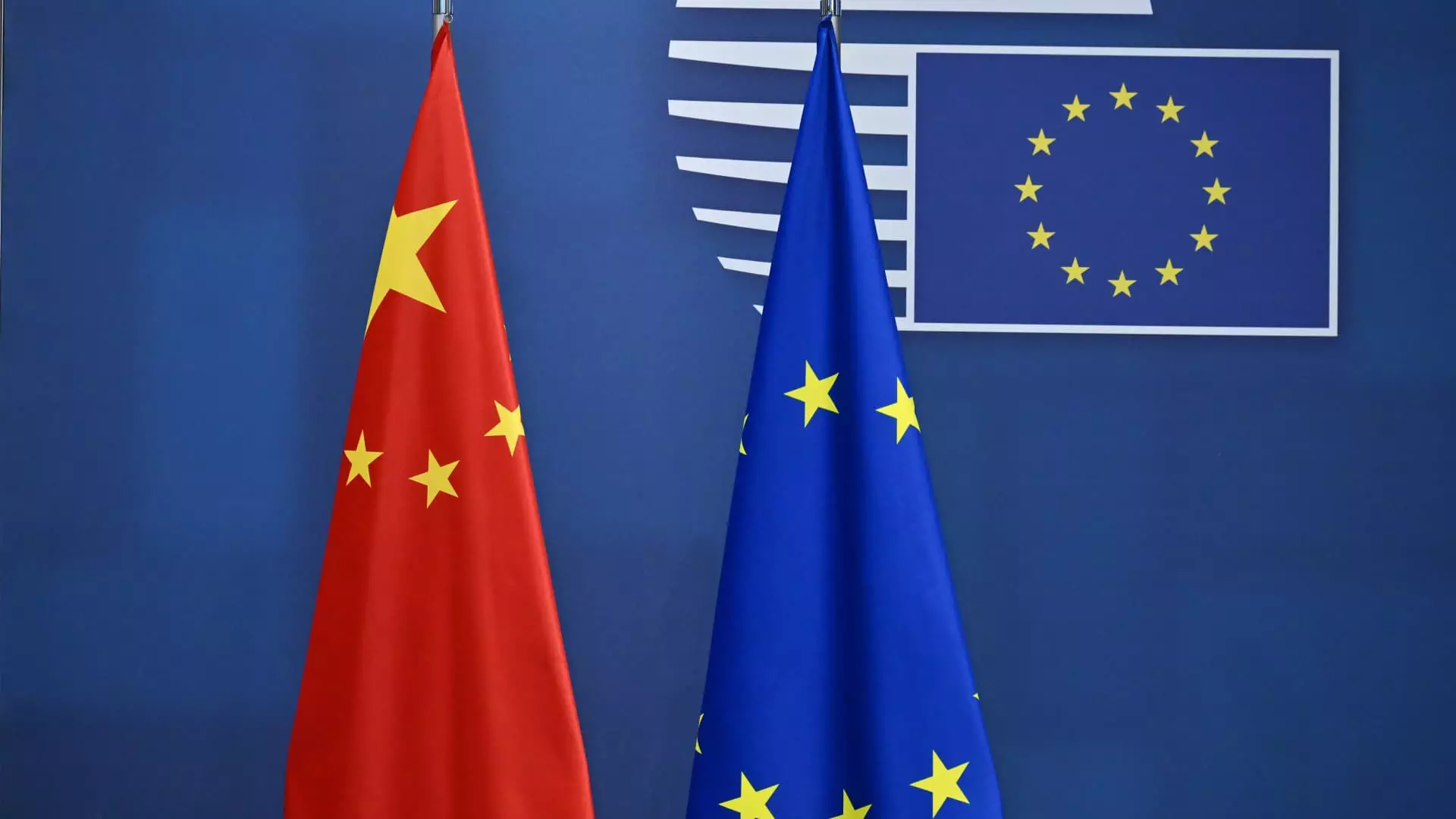In recent months, the once-promising partnership between the European Union and China has devolved into a battleground of mutual suspicion and economic brinkmanship. What was once hailed as a potential axis for global growth is now a complex web of tit-for-tat restrictions and escalating tensions. This deterioration is not merely a reflection of conflicting interests but signals a broader crisis in multilateral trade diplomacy, risking the stability of global markets and the future of international cooperation.
Both Beijing and Brussels have resorted to provocative measures—such as China’s import curbs on European medical devices and the EU’s retaliatory tariffs on Chinese goods—highlighting a fundamental breakdown in trust. The strategic importance of these economic relationships is often masked by rhetoric of mutual benefit; however, the reality reveals a growing hostility rooted in national interests and geopolitical jockeying. This enmity is compounded by each side’s attempts to weaponize trade as a geopolitical tool, thus further complicating efforts to stabilize economic ties.
The EU’s heightened skepticism regarding China’s industrial policies and overcapacity issues reflects broader concerns about unfair practices and market distortions. Conversely, China perceives European measures as barriers to its economic ascent, prompting Beijing to pursue aggressive tactics—including restrictions on exports of critical materials such as rare earth elements. Such actions threaten to escalate into a cycle of protectionism, where mutual retaliation undermines the very markets that could foster mutual growth.
Structural Fault Lines: Competing Visions of Economic Power
At the core of the current impasse lies a clash of visions. For China, exporting surplus goods is a means to recover stagnating growth and assert global economic influence. Yet, this expansionary urge conflicts fundamentally with the EU’s efforts to safeguard its industries from foreign dominance. European nations, increasingly wary of China’s economic reach, are seeking to bolster their own technological independence and reduce reliance on Chinese imports—an effort that is perceived as a threat by Beijing.
This divergence feeds into the broader narrative of strategic rivalry, where economic measures are weaponized in pursuit of geopolitical dominance. The EU’s push for strategic autonomy, exemplified by increased protective tariffs and supply chain diversification efforts, is seen by China as an attempt to contain its ascent. Meanwhile, China’s export restrictions, especially on vital sectors like automotive and technology, demonstrate its willingness to wield economic coercion in the absence of productive dialogue, further fraying already fragile relations.
The real danger here is that these entrenched positions do not appear to be moving toward reconciliation. Instead, both sides are digging in, perceiving each other less as partners and more as rivals—culminating in a diminished possibility for diplomatic breakthroughs. This ideological and economic deadlock threatens to create a new era of fragmentation, where the global trade order becomes increasingly segmented and unstable.
Global Implications and the Fragile Future of Multilateralism
The fracturing of EU-China relations signals a dangerous precedent for global stability. Historically, cooperation among major economic powers has been a cornerstone of international prosperity. Yet, the current trajectory suggests that geopolitics and economic nationalism are overtaking multilateral commitments. The consequences extend beyond bilateral disputes, potentially tilting the balance of global power and undermining efforts to tackle transnational challenges like climate change and technological regulation.
Moreover, the era of U.S. tariff wars—initially viewed as a temporary disruption—may have inadvertently emboldened China and Europe to pursue more self-interested policies. Beijing’s perception that it has gained the upper hand in its trade confrontation with Washington appears to diminish the incentive for genuine collaboration with Europe, focusing instead on consolidating its own strategic interests. This shift could lead to a world where economic blocs operate independently, with little regard for shared rules or cooperation, thus heightening the risk of global chaos.
High-stakes summits, such as the upcoming EU-China talks, are unlikely to mend these fractures. The hardened positions of European policymakers, coupled with China’s assertiveness, suggest that negotiations will be arduous at best and fruitless at worst. If diplomatic engagement continues to be dismissed in favor of protectionist measures, the international community risks entering a prolonged period of economic destabilization where cooperation is replaced by confrontation.
Is There Still a Path Forward? Or Is Collapse Inevitable?
While some analysts argue that mutual interest could eventually bring Beijing and Brussels back to the negotiation table, the current climate offers little hope. The ongoing escalation suggests that both sides are more invested in asserting dominance than seeking solutions. The persistent use of trade as a geopolitical weapon diminishes the prospects for genuine compromise and signals a willingness to prioritize national interests over global stability.
The broader liberal vision—focused on open markets, multilateral institutions, and peaceful cooperation—faces a formidable challenge. It demands courage and strategic patience to navigate this treacherous landscape, where short-term interests often override long-term stability. Yet, the failure to address these tensions risks plunging the global economy into a prolonged period of uncertainty, fragmentation, and conflict. The question remains whether either side is willing to embrace the difficult work of rebuilding trust before irreparable damage is done.


Leave a Reply